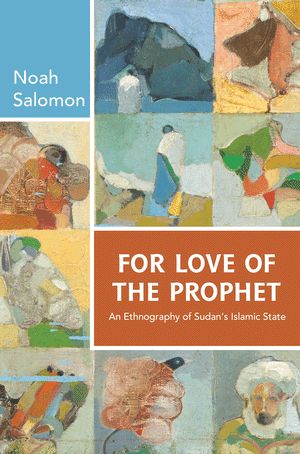Noah Salomon begins his work with the provocative statement that the “state may have failed according to the criteria of Foreign Policy’s index, yet by producing and sustaining novel publics, it has in fact endured,” but ends with “the Islamic public sphere [the state] had enabled was turning out phenomena they could not control.” Namely, the Islamic state’s project towards public hegemony paradoxically engendered its rejection embodied by the secular secessionist movement in South Sudan and ISIL’s rejection of the Islamic nation-state model based on sovereignty. . . . I’m left wondering how specifically these non-discursive, non-didactic, somatic and affective circulations in the “public” played a special role in these ruptures. Is Salomon simply left agreeing with Wael Hallaq that the Islamic nation-state is an “Impossible State” due to incommensurable modes of (now insert: “affective”) disciplinary subjectification and moral governance?
Latest posts
Weak theology and the anti-gospel of American exceptionalism
Has the United States been a source of good in the world? Weak theology assumes a position of service to the vulnerable as the point of redemptive activity. A strong theology would…
The rhetoric of Islamic politics in local and global dimensions
 by
Abdulkader Tayob
by
Abdulkader Tayob
Noah Salomon’s ethnography of politics provides a penetrating insight on the far-reaching effects of the Islamic state project in the Sudan. It is a welcome study of an Islamic state that is more than two decades old, at a time when a new experiment in the Levant seems to overwhelm the global imagination. The older models, including the Pakistani, the Iranian, the Libyan, and earlier still the Saudi, provide food for thought of Islamic politics in its local and global manifestations. These earlier projects offer a longer-term perspective of political projects in the face of continuing challenges in Muslim societies. These include questions of diversity, legitimacy, economic prosperity, deep inequalities, ever-present foreign interventions that constitute our global world, and fractured religious identities. Salomon’s monograph is a close interrogation of Sudan’s Islamic state, particularly in the responses that it generates from other Islamic actors. Through this ethnography, he explores other kinds of politics and other kinds of publics that unfold in response to the state’s project that was launched in 1989.
Scholar or retailer of import goods? Reza Aslan, his guru, and his critics
“I came to Varanasi India to do a show about Hinduism, about karma, reincarnation, the caste system, and a little known Hindu sect called the Aghori. That’s when things got out of…
When is the Islamic state? Historical time and the agenda of Islamic studies
 by
Kabir Tambar
by
Kabir Tambar
From the Islamic revolutions in Iran (1978-79) and Sudan (1989) to the recent emergence of ISIS, the concept of an Islamic state is often greeted in North America and Western Europe with a distinct historical anxiety, as a phenomenon of pre-modernity erupting in our midst. Scholars of Islamic studies have long countered that in fact these entities are constituted squarely within the discourses and institutions of the modern state: the movement in Iran, for instance, followed the longstanding revolutionary-national tradition in claiming that it acted on behalf of the will of “the people,” and the Sudanese leadership embraced the idea of civilizing a pre-modern religiosity, a project that has been a hallmark of Enlightenment thought. Nation-states that claim to derive their law from Islam still typically codify sharia in the format of a constitution, often drawing on the conventions and language of international law as a guide. In reminding readers of these points, scholars of Islamic studies challenge the relegation of Islamic politics to pre-modernity. But in showing the many ways in which actual political practices in the Muslim world remain within the fold of modernity, this line of critique risks reinscribing the same temporal division, leaving it in place as the very condition of intelligibility of Islamic politics. How might a different understanding of historical time reorient the agenda of Islamic studies?
“I am not a racist, but . . .”: The perversity of the recent ECJ ruling on the “headscarf issue”
It is by now commonplace that ostensibly “neutral” language—such as the notorious preamble “I am not a racist, but . . .”—can serve to mask or justify covert forms of discrimination. Yet,…













